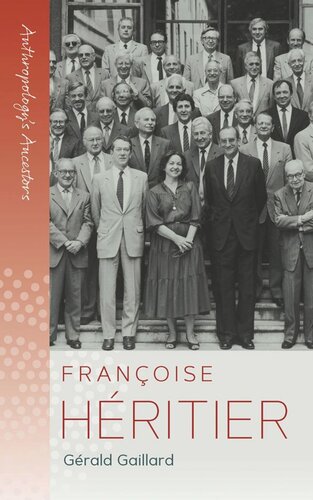

Most ebook files are in PDF format, so you can easily read them using various software such as Foxit Reader or directly on the Google Chrome browser.
Some ebook files are released by publishers in other formats such as .awz, .mobi, .epub, .fb2, etc. You may need to install specific software to read these formats on mobile/PC, such as Calibre.
Please read the tutorial at this link: https://ebookbell.com/faq
We offer FREE conversion to the popular formats you request; however, this may take some time. Therefore, right after payment, please email us, and we will try to provide the service as quickly as possible.
For some exceptional file formats or broken links (if any), please refrain from opening any disputes. Instead, email us first, and we will try to assist within a maximum of 6 hours.
EbookBell Team

4.3
8 reviewsFollows the life of French anthropologist Françoise Héritier, who had a lasting impact on a generation of French anthropologists that continues to this day.
A great intellectual figure, Françoise Héritier succeeded Claude Lévi-Strauss as the Chair of Anthropology at the Collège de France in 1982. She was an Africanist, author of magnificent works on the Samo population, the scientific progenitor of kinship studies, the creator of a theoretical base to feminist thought and an activist for many causes.
“I read this intellectual biography of Françoise Héritier with great pleasure. Though highly regarded in France, she is not yet well known in English-language academic circles, but she certainly should be. This book will be a revelation to many anthropologists and feminist scholars.”—Adam Kuper, London School of Economics
From the Forword by Michelle Perrot:
I came to know her at the National Council for HIV, that she chaired from 1989 to 1994…. Her theoretical concerns were also crucial to the understanding of pandemics, but we did not then realise that HIV/AIDS was also a precursor and a warning of pandemics to come. She grasped the importance of conceptions of bodily ‘humours’—blood, semen, milk—that seemed to play a role in the horrific spread of an epidemic of which we knew nothing, except that it resulted in an appalling mortality rate, particularly among young men…. she was a remarkable chair, concerned to share her insights into the illness and to anchor—necessary—interventions within a framework that would be respectful of human rights.